Baby pepper inside pepper | Strange vegetable
Strange vegetables
I have never seen a baby pepper growing inside another pepper before. Therefore I was intrigued when my daughter texted that something strange was in her bell pepper.
It’s a condition called Internal Proliferation or Carpelloid Formation and the small fruit is usually sterile. But the good news is that it is totally edible! The baby pepper inside varies in shape and size. They forms as anything from an almost identical but smaller fruit to a very irregular looking fruit. Whatever the shape, the exact reason for it is still uncertain, although it is likely to be genetics. It occurs in seed lines through natural selection. However it does not seem to be affected by external conditions like pests or the weather. Additionally, other reasons are thought to include rapid changes in heat or humidity or the use of ethylene gas which is used to speed up ripening of peppers.
Finding a baby pepper inside pepper
I had a peculiar text conversation with my daughter and here’s what we said.
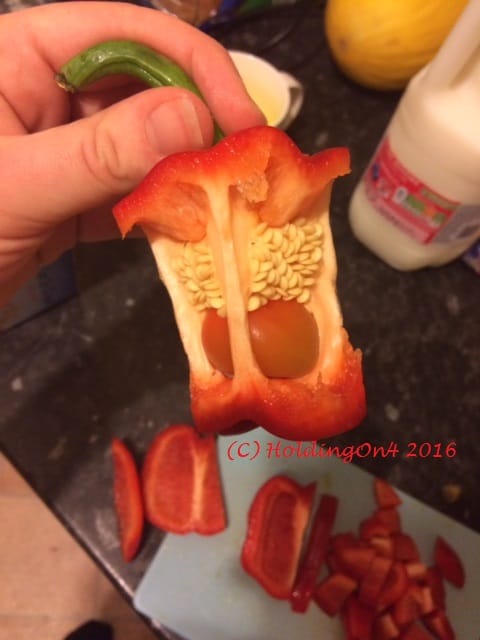
D. What is that?! Can I still eat the edges?!
M. Is it a baby pepper growing inside?
D. Oh maybe
M. I wouldn’t eat any of it unless it looks like veg too. I think it would put me off eating the whole thing.
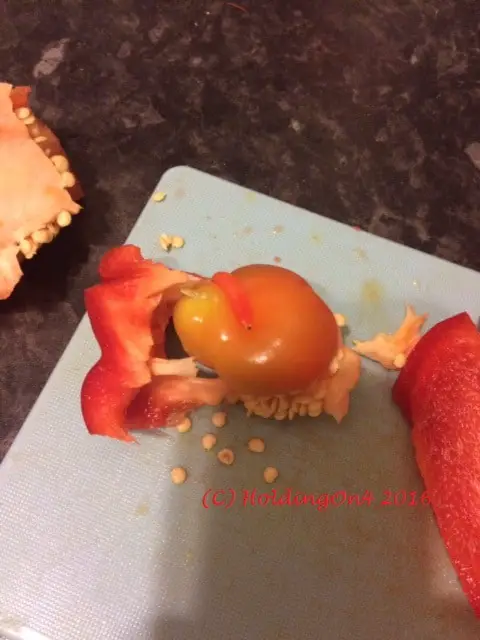
M. Have you tried cutting in to it?
D. No.
M. It looks even yuckier now!
D. I’m scared lol
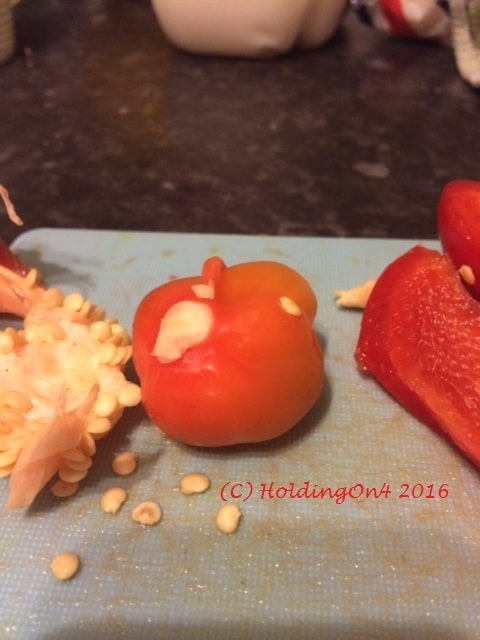
M. Oh that’s grim
D. Yes haha
D. Lol it’s freaking me out
M. Cut it in half and photo
D. That means touching it
M. Knife and fork?
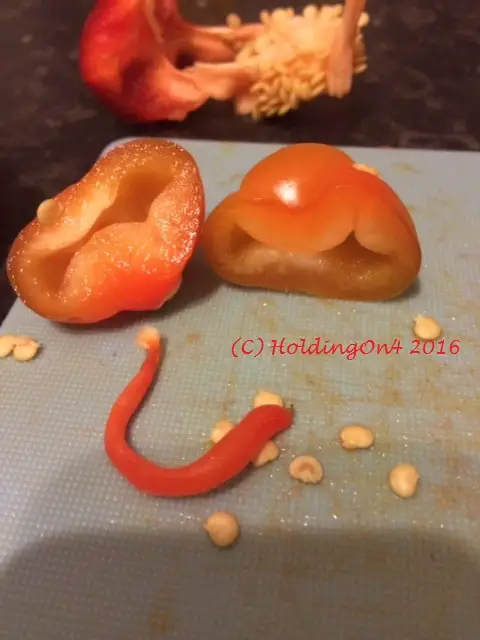
M. Well I’ll be.
D. The pepper looked totally normal from the outside.
Certainly, I was wrong in my assumption that a pepper growing inside a pepper was inedible, because it can be eaten without a problem. My lucky daughter got two for the price of one!
Internal proliferation, like the baby pepper inside pepper shown above, can occur in a variety of seeded fruits including egg plants (aubergine), tomatoes and citrus fruits. It occurs more in fruit picked when not fully ripe and subsequently treated with ethylene gas to artificially ripen it for market.
Seeds develop from fertilized ovules. Normally, a fruit forms to protect the ovules after fertilization and develop into young seeds. We usually discard the seeds from a pepper before we eat the outer fleshy part of the fruit. However, at times, parthenocarpy occurs. This is when fruits form without seeds. It occurs naturally or is artificially induced. Parthenocarpy gives us seedless oranges and bananas without large seeds in them.
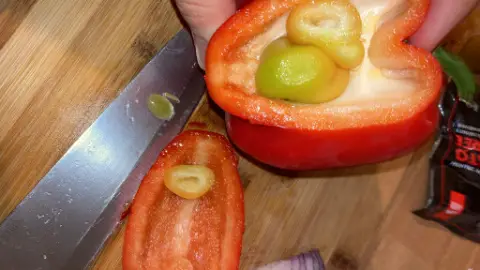
Further reading, viewing and information
We don’t grow peppers as I have an allergy to them, but Shaun at Chillichump has lots of really useful advise about growing chillies and peppers.
You can find a list of all the vegetables, fruit and herbs that we grow at Byther Farm on the resources page What We Grow. Moreover, I’ve included links to suppliers of seeds and plants wherever possible.
Originally published 10th January 2016 and edited 11th December 2020
- Plants to divide in autumn - January 31, 2026
- 11 Bulbs to plant in autumn - January 16, 2026
- Daisy flowers for autumn - January 2, 2026

Fairly common in Australia. Never thought about not eating the whole thing.
I’m kicking myself because I’ve had this happen a few times and I’ve just thrown them in the compost…what a waste! Thanks for clarifying what they are – very interesting.
I have seen that often with store bought, imported peppers – never with locally grown from the farmers market and never with my own, either. So the ethylene thing totally makes sense to me.
That is a very interesting pepper! I had one this year with an extra growth out of the top that made it look like Elvis Presley!
Oh goodness I remember this day so clearly. I was laughing my head off! I have had so many of these pepper babies since then. But that very first one really did freak me out!
Get these a lot at the moment. I had a red pepper with two mini green peppers inside just a couple of days ago. But over the last year I’ve probably had as many with them as without. Never seen / noticed them before this year though!